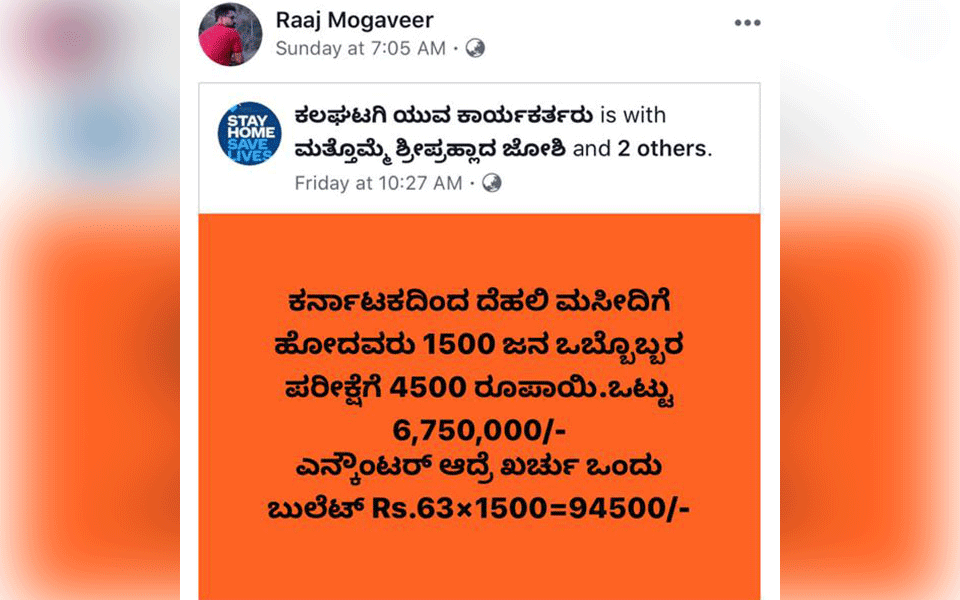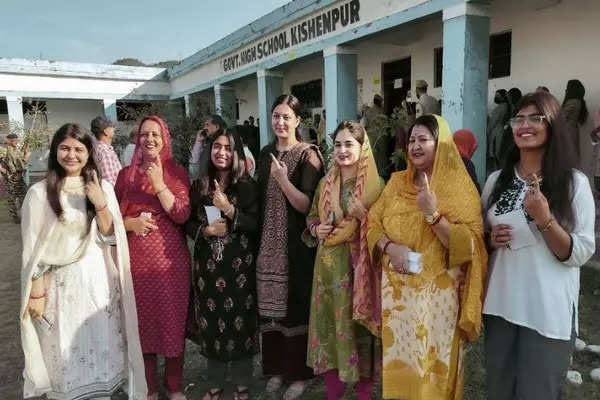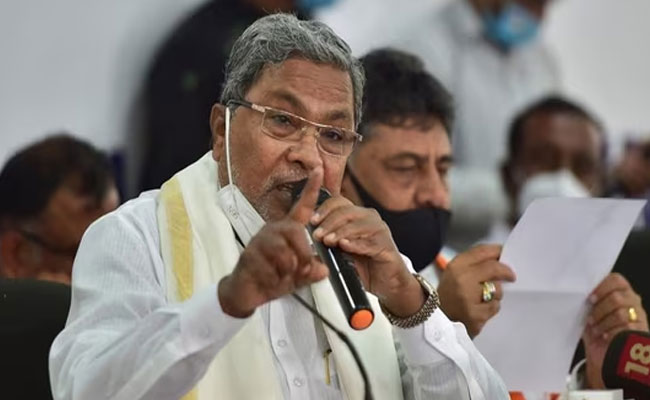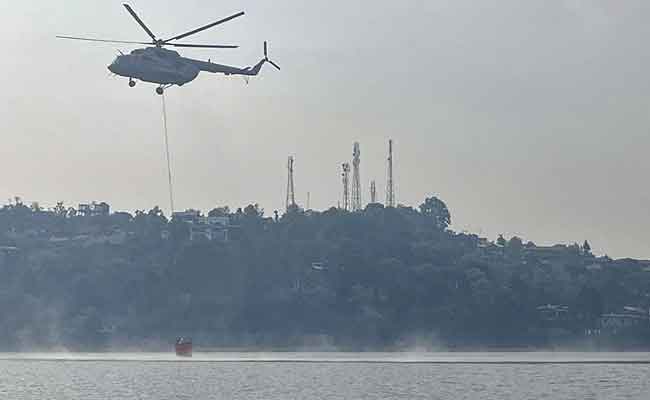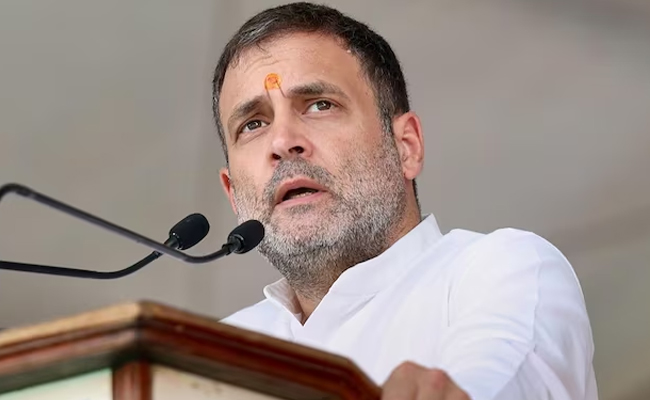Kundapur: Kundapur police have lodged a case against Nagaraj Mogaveera, 28, a resident of Karwadi Saukur in Kundapur, for sharing a communal hatred and sensitive post over Facebook.
On his Facebook page, Nagaraj reportedly wrote, "1500 persons went to Delhi mosque from Karnataka. Each person's test costs Rs. 4500 which becomes expenditure of Rs. 67,50,000 in all. If they be encountered, each bullet costs Rs. 63 and total expenditure will be Rs. 94500."
Based on the complaint filed by Mukhtar Ahmad of the Janata Colony of Kundapur Karwadi village, the police have booked a case under the IPC Section 1860, 295A, 505 (2) and launched the investigation.
Let the Truth be known. If you read VB and like VB, please be a VB Supporter and Help us deliver the Truth to one and all.
New Delhi, (PTI): Women constituted only eight per cent of the total 2,823 candidates in the first two phases of the Lok Sabha elections, with political activists saying it reflects a deeper issue of gender bias and that talk of women's empowerment rings hollow.
There were 135 women candidates in the first phase of the elections and 100 in the second phase, bringing the combined total for the first two phases to 235.
In the first phase of the elections on April 19, there total number of candidates in the fray was 1,625. In the second phase held on April 26, 1,198 candidates contested the elections.
Of the 135 women candidates in the first phase, Tamil Nadu had the highest share at 76. However, that figure accounted for just 8 per cent of the total candidates in the state.
Kerala had the maximum number of women candidates at 24 in the second phase.
Partywise, the Congress fielded 44 women in the two phases and the BJP 69.
This significant gender imbalance has sparked criticism from political analysts and activists, who asked why parties are waiting for the Women Reservation Act to be implemented instead of proactively fielding women.
Dr Sushila Ramaswamy, an associate professor at Delhi University's Jesus and Mary College, said political parties should take concrete steps to promote women's candidacy.
"Political parties should have been more proactive and fielded more women candidates," she underscored, citing the effectiveness of seat reservations for women within party structures, as seen in the UK's Labour Party.
With women constituting nearly half of India's electorate, their under representation in the candidate pool raises broader questions about the barriers hindering women's full participation in the political sphere, said Dr Iftekhar Ahmad Ansari, an associate professor at the Aligarh Muslim University (AMU).
Beyond the symbolic gestures and promises, he stressed the importance of structural reforms to ensure equal opportunities for women in politics.
He also highlighted the critical role of party leadership in promoting gender diversity.
"Political parties must prioritise gender inclusion in candidate selection and provide adequate support to women aspirants," he emphasised.
Farhat Jahan, a retired faculty member at AMU's Abdullah Women's College, said the issue of women's political representation extends beyond numerical quotas to encompass systemic changes in party dynamics and electoral processes.
She also emphasised the need for gender-sensitive policies that address challenges faced by women in politics.
"The upcoming phases of the elections present an opportunity for political parties to demonstrate their commitment to gender equality through concrete actions. Initiatives such as mentorship programmes, capacity-building workshops and awareness campaigns can empower women to actively participate in the electoral process and pursue leadership roles," she added.
Prof Mohammad Aftab Alam from the political science department at AMU pointed out the challenges women often face in forming independent political opinions amid societal influences.
"Even the ones elected are often relegated to symbolic roles," he remarked, highlighting broader issues of token representation.
The Biju Janata Dal (BJD) is the only party that, as a policy, provides 33 per cent tickets to women.
Meera Parida, state vice-president of the BJD's Biju Mahila Dal, stressed the need for substantive action in women's empowerment and praised her party's initiative of reserving 33 per cent of seats for women.
"Reserving seats alone is not enough. We need a cultural shift where women are seen as leaders and decision-makers," she emphasised, advocating for comprehensive reforms.
Both major parties -- the BJP and the Congress -- have listed women-centric initiatives in their manifestos.
The BJP's manifesto promises to implement the Nari Shakti Vandan Adhiniyam (Women' Reservation Act) to honour and empower women, integrate women Self-Help Groups (SHGs) into the service sector to enhance their economic participation and expand health services.
The Congress has pledged legislative reforms for women's empowerment, including the immediate enactment of the Women's Reservation Act.
However, these commitments are yet to translate into substantial numbers of women contesting the elections.
Alka Lamba, chief of the Congress' women's wing, highlighted the party's commitment to gender equality across sectors.
"The Congress has extended political, economic and social rights to women," Lamba asserted, outlining ambitious targets for women's representation in leadership roles.
As the Lok Sabha elections progress, the spotlight is on political parties to address these concerns and demonstrate tangible commitment towards fostering women's participation and representation in governance.
The upcoming poll phases will be closely monitored to assess whether there is a meaningful shift towards greater gender inclusivity in the political landscape especially after the hype over passage of the Women's Reservation Act, Aftab said.
Ramaswamy noted, "While parties are vocal about empowering women, the lack of women candidates reflects a deeper issue of gender bias within political systems."
The Lok Sabha polls are being held in seven phases beginning from April 19 and the counting of votes will take place on June 4.
The second phase was held on April 26 while the other phases are scheduled for May 7, May 13, May 20, May 25 and June 1.

